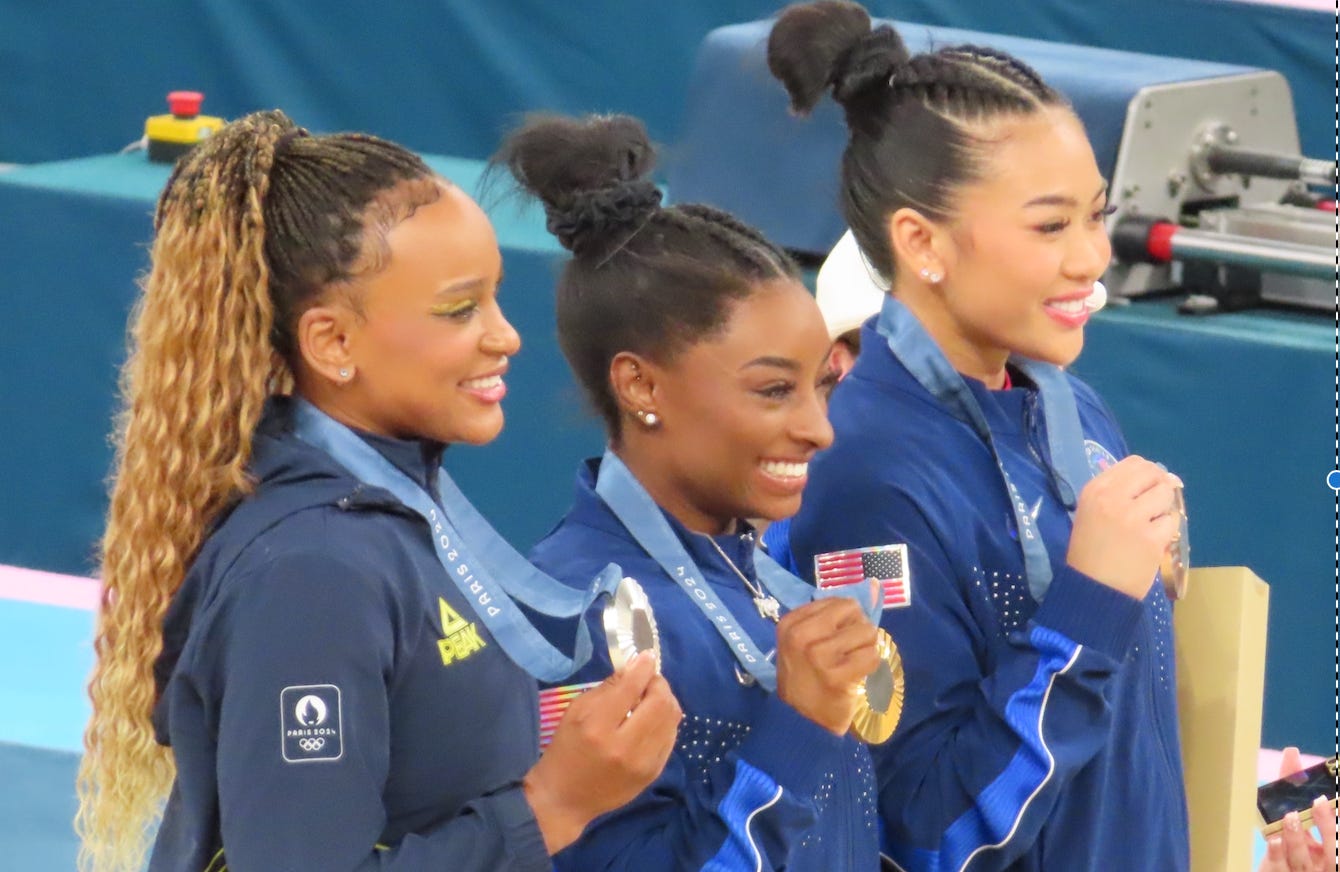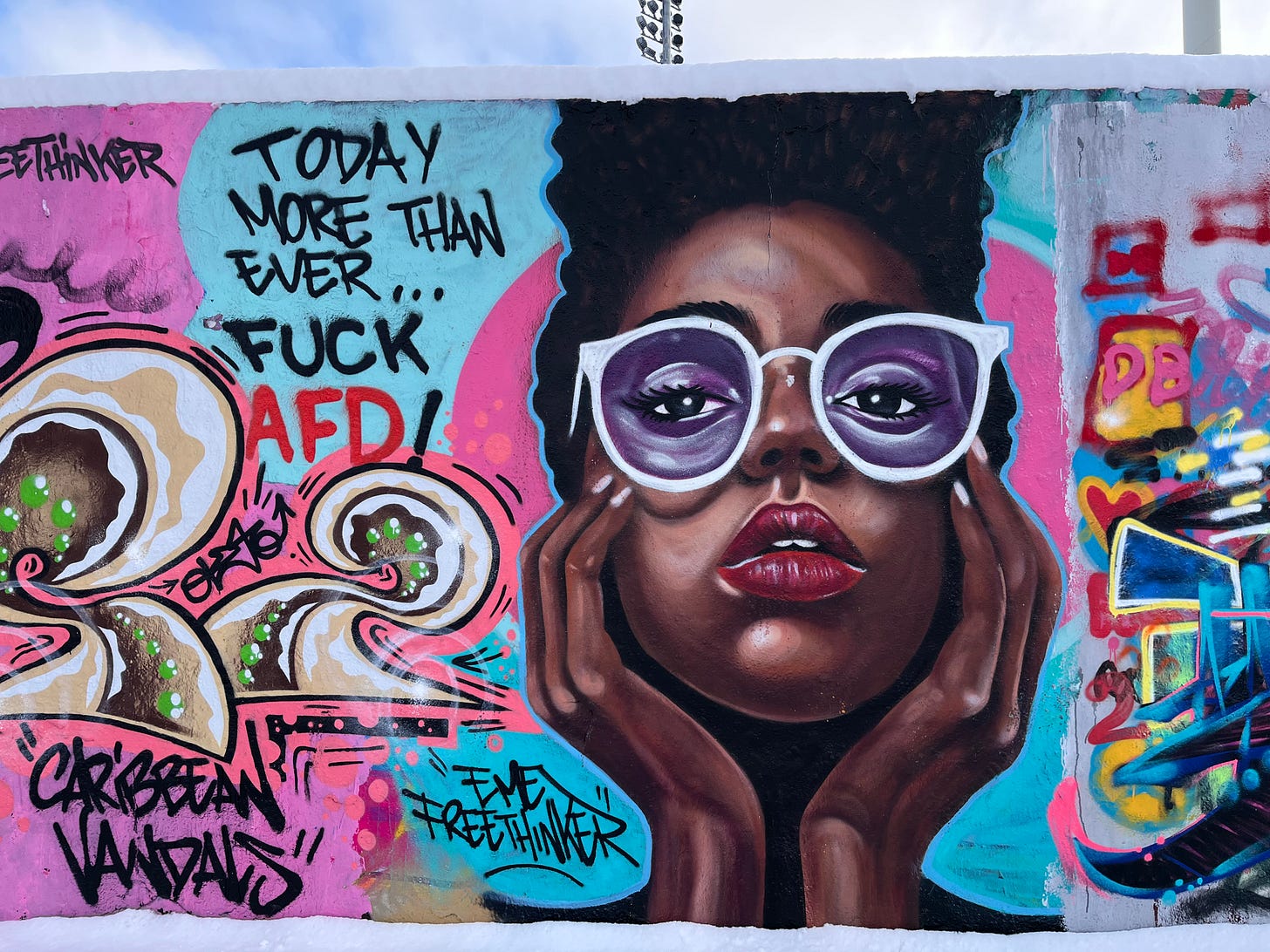An A-Z of Gen A and Z
A glossary of teen slang and what it tells us about growing up today
When my son called me a goat, it turned out to be one of the best compliments he’d ever given me. If you don’t even know what a GOAT is, then this abridged dictionary of teen slang may be for you.
I am fascinated by the way words from video games, sport and pop culture are constantly entering the vocab of young people, transcending borders and even languages, while us “boomers” struggle to keep up, TBH. TikTok is full of reels of older people making fools of themselves by trying to use these terms correctly. So even though I’m clearly a cringe NPC to try to get down with the kids, here is my glossary of some top terms used by my sons and their friends.
Alpha - the most dominant, powerful, or assertive person in a group, often used in a disparaging way for a male who wants to lead a group and be popular with the opposite sex. This might not seem like a new term, but the way and frequency youngsters apply is new. My sons started using “alpha” in primary school to describe boys who were the most popular in their class, or who wanted to be. It is tied to an ethos of hypermasculinity that is promoted online by influencers like Andrew Tate. One UK study shows 45% of Gen Z boys believe that efforts to promote women’s equality have gone so far that men are now discriminated against.
Not to be confused with … Gen Alpha – The generation born after 2010 that is entering puberty now that have grown up as digital natives, a trend that was accelerated by the pandemic and home schooling. But Gen Alpha doesn’t seem very, well, “Alpha”. This survey suggests they are more focused on a sense of purpose than Gen Z, with 30% saying they want to work to help people or animals in need.
Brainrot - the state of losing touch with the real world as a result of consuming too much trashy online content. While this is a major topic of concern for parents and teachers, some young people are pushing back against digital addictions and embracing old-fashioned past-times like knitting and reading physical books. Meanwhile, mental health is one of the top concerns of young people and they are much more vocal about trying to protect it as they enter the workforce.
Cap – to lie (no cap = to tell the truth) – used to describe anything you disagree with, often in response to my comments about too much screentime causing brainrot as in: “Stop the cap, mum”.
Cringe – embarrassing or uncool – teenagers have always cringed at their parents, but the word is now used as an adjective as well as a verb as in, “That’s so cringe, mum,” if I suggest inviting friends over instead of meeting them online. It has become harder for teenagers to escape potential embarrassment given that they are always online, facing constant pressure to conform. While my generation remains relatively unconcerned about posting pictures on Facebook, teens like to share with friends but they don’t want to leave a permanent digital diary for potential future employers or partners to dig up. That explains the popularity of messaging services like Snapchat, where messages soon disappear, as well as digital avatars they can hide behind.
Drip – fashionable - a noun as well as a verb: “I got the drip.” The baggier the better has been the trend in the last few years in a reaction against the skinny jeans and yoga leggings favoured by millennials. I tried telling my sons that we used wear baggy jeans too in the 1990s. But it turns out my old bellbottoms don’t have enough “bag”. The baggy trend is part of a trend towards more “body positivity” or acceptance of different body shapes, although there has also been a backlash against that style in the last few years as some girls emerged from their pandemic caves and embraced hypersexualised fashion, heavy make-up, long embellished nails and even surgery.
Digga – friend (from dicker Freund) – while most of these terms have gone global due to YouTubers and gamers, this one is Germany-specific but it punctuates every sentence of Berlin teens. English equivalents include "bro" or “blud”, apparently derived from Jamaican slang for "blood brothers".
Flex – to show off – this usually refers to boastful behaviour rather than flexing muscles, although gyms have replaced clubs and pubs as the place to socialise as body-conscious youngsters prefer pumping iron to a pumping sound system. (56 % of Gen Z consumers in the US see fitness as a “very high priority” compared with 40 % of the population overall, according to a McKinsey survey).
GOAT- Greatest Of All Time – a term of respect that originated with top musicians and athletes like gymnast Simone Biles who wore a necklace with a tiny goat pendant at the Olympics. However, Gen Z is less interested in sports than older generations. Only 18% of Gen Zers say they have attended a live sporting event in the past year, although they are watching esports – video game competitions, which I find baffling.
HMU – Hit me up. Contact me (can also be used to ask for money or make a pass at somebody). Studies suggest the young having less sex than previous generations, perhaps due to concerns over consent since the #MeToo movement, and the social isolation of the pandemic. There seems to be less pairing up among teens I know compared to my misspent youth, although the streets of Berlin on a Friday night are teeming with youngsters drinking beer, just like Newcastle in the 1980s.
Influencer – you know this one already, unless you’ve been living in a cave. A person active on social media with a loyal online following, often with a particular niche. There are “finfluencers” offering investment advice, or avid readers sharing their favourite novels on #BookTok. Surveys suggest young people are far more likely to trust posts from influencers than older generations, who prefer to rely on established media and brands – an important lesson for older journalists who need to get comfortable with building their own “news influencer” brands online.
JOMO – Joy of Missing Out – the pleasure that comes from a simpler life - a reaction against the Fear Of Missing Out (FOMO) psychology that keeps people glued to their phones. The JOMO philosophy is also extending itself to the workplace with many youngsters pushing back against sacrificing everything for their employers. One survey showed that half of Gen Z don’t want to be middle managers and almost 70 per cent dismissed such jobs as “high stress, low reward”.
Karen – a middle-aged white woman who use her white privilege to get their own way. This term has mostly been been used to mock older white women who make racist comments, but it can also be seen as a new way to shame women who speak up about anything.
Lit - remarkable, interesting, fun, or amusing. I realised how much of Gen Z culture – and slang - has gone global when we had a French exchange student to stay who watched all the same YouTubers as my sons. A survey of English language teachers shows that 80 percent of Gen Z students acquire the bulk of their language skills watching social media and most teachers now incorporate slang into their lessons.
Mew – attempt to make jawline more pronounced by pressing the tongue to the roof of their mouth. Named after the British dentist John Mew and his son who promoted the practice. Perhaps it is not new that young people are more concerned with their looks than us oldies, but eating disorders and demand for plastic surgery are booming under the young. The more time people spend on social media platforms, the more likely they are to want to opt for the knife, according to this study.
Mid – average or mediocre – This term could be used to describes the academic achievements and job prospects of many teenage boys: in the UK 54% of women are in higher education by age 19 versus 40% of men, while women aged 20-24 have higher employment rates and earnings than men… although those initial advantages quickly reverse when they start having kids. Meta boss Mark Zuckerberg tapped into a common trope among young men when he said companies needed more “masculine energy”: 47% of Gen Z males agree that “masculinity is under attack”.
NPC – “non-player character” - a nonentity or unimportant person- this jibe, which has its origins in video games, is a pretty common insult in our household. It might seem tame but studies suggests many Gen Z teens have experienced cyberbullying, contributing to a surge in reported mental health problems.
“OK boomer” – a way to mock dated attitudes held by older people, especially baby boomers born 1946-64. My son used this on me recently and I had to explain I am not a “boomer” but Gen X. As Gen Z enters the workforce, there is lots of potential for conflict with older managers, but we can also learn from youngsters, including “flexibility, social conscience, and inclusion… as well as how to have more fun at work or to take more risks,” according to IMD leadership professor Katharina Lange.
POV – point of view – Young men and women increasingly have very different POVs when it comes to politics - young women are becoming more liberal and young men are turning to the right, most recently seen in their support for Trump and Germany’s far-right AfD party. However, this study shows that while young women are more progressive, they are more focused on personal goals like education, career and lifestyle, rather than active involvement in politics.
Quarter-life crisis – a crisis of meaning in a person’s 20s or early 30s- older Gen Z have finished studying, have their first job and are asking “what’s next” in a world where they are unlikely to be able to afford the same quality of life as their parents. Writer Eliza Filby says one of the biggest sources of inequality nowadays is the “inheritocracy”, creating a gulf between those whose parents can afford to keep supporting their kids into their 20s and those who cannot. A UK study shows 55% of 13-27s say wealth at birth matters more for success than hard work.
Rizz – short for charisma – romantic appeal or charm - Gen Z is apparently reacting against the dating apps favoured by millinnials and opting instead for old-fashioned introductions through friends or speed dating events, like the one I saw in Berlin that drew a long line on Valentine’s Day.
Sigma – a lone-wolf or bad boy who plays by their own rules – can also mean cool. Used in my household ironically, as an insult for anybody trying to influence others but failing. The veneration of “sigmas” coincides with concern about “toxic individualism”. Gen Z have grown up in a world where anything is available in a click – a pizza, a ride, a holiday or a date – and you don’t need to rely on family, friends or neighbours for favours. This individualism is helping to fuel an epidemic of loneliness - those aged 16 to 24 feel more lonely than any other age group, including people aged 65 and over.
TBH – to be honest – despite panic about youth knife attacks, Gen Z is objectively more honest than previous generations – they commit less crime and drink less alcohol, perhaps because they spend so much time online, or because they don’t feel they can risk misbehaviour given the state of the world and their finances.
Unbox – the bizarre social media trend of videoing yourself opening something bought online.
Vintage – second-hand fashion – it is not new for teenagers to look for a bargain but buying (and selling) hand-me-downs is now cool, and big business. The global second-hand clothes market will be worth $350 billion by 2028. My son has gone through three coats this winter: one he bought new and sold to a friend when he found another second-hand coat he preferred from a more expensive brand for the same price. A few months later, he had tired of that one, sold it to another friend and bought an even pricer one on Vinted. Meanwhile, his mother, in a rush to buy a coat for his brother for Christmas, was scammed by a fake website. And, she is still wearing the same coat she bought 10 years ago from Marks & Spencer…
W – short for Winner vs L for Loser. Used in combination with other words such as “L-rizz” meaning “loser charisma” for those unlucky in love. Young men are particularly prone to winner-takes-all, or zero-sum thinking, according to this study, pitting groups against each other and hindering collaboration: “toxic individualism” again.
(Gen) X – my generation born 1965-80. Back then, we were more likely to define ourselves as children of Thatcher, Reagan or the Cold War. Nowadays, I think of us as the “Suck-It Up” generation, at least at work. Compared to Gen Z, we were prepared to put up with long hours and authoritarian bosses to hang onto jobs in big companies, pretending that we didn’t have lives outside of work, or any caring responsibilities. Nowadays, young people will even ask for time off to look after a sick pet, one manager complained to me recently.
Yap – to talk in an annoying way or to talk nonsense – usually used in response to requests to stop playing Fortnite.
(Gen) Z – The IMD business school suggests that generations follow this cycle: revolutionaries, order seekers, pragmatists and insecure. Revolutionary Boomers were followed by Gen X order seekers, then pragmatist millennials were overtaken by insecure Gen Z, ready for Gen Alpha to take on the revolutionary mantle and start the cycle again. Will the progressive or reactionary revolutionaries win out?
What I’m reading:
Julia by Sandra Newman - I picked this retelling of George Orwell’s 1984 from a woman’s perspective for my new book club and then felt guilty for imposing on others the rather grisly tale of dictatorship and betrayal. In the current political climate, it provided excellent fodder for discussion, even if I had to skip the parts on torture.
Butter by Asako Yuzuki - A very odd bestseller with a striking yellow cover about a Japanese journalist who is investigating a convicted female serial killer. It lays bare impossible standards imposed on Japanese women, in terms of beauty and care for men, but the detailed description of butter-laden meals might be too rich for some.








